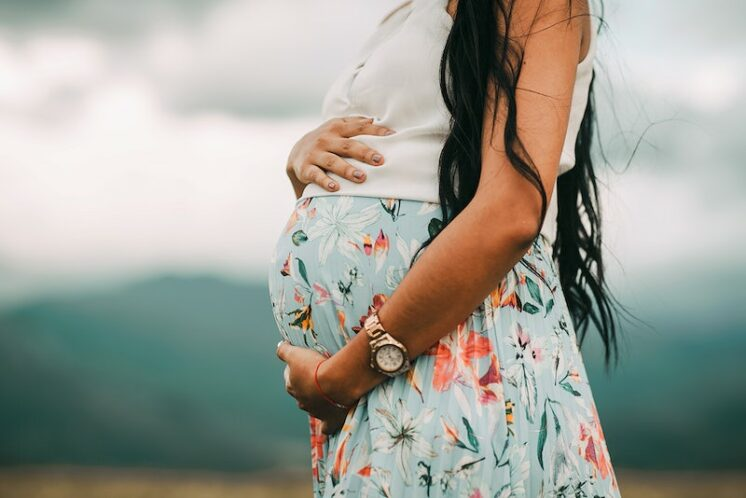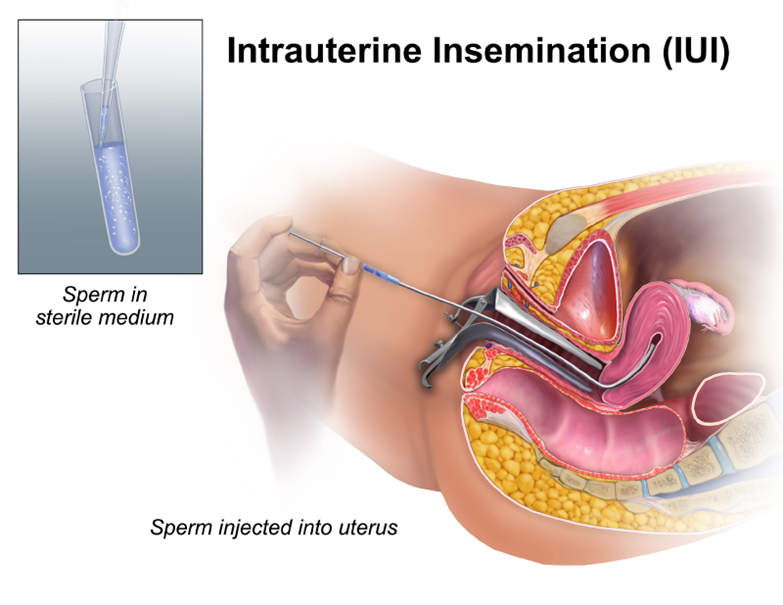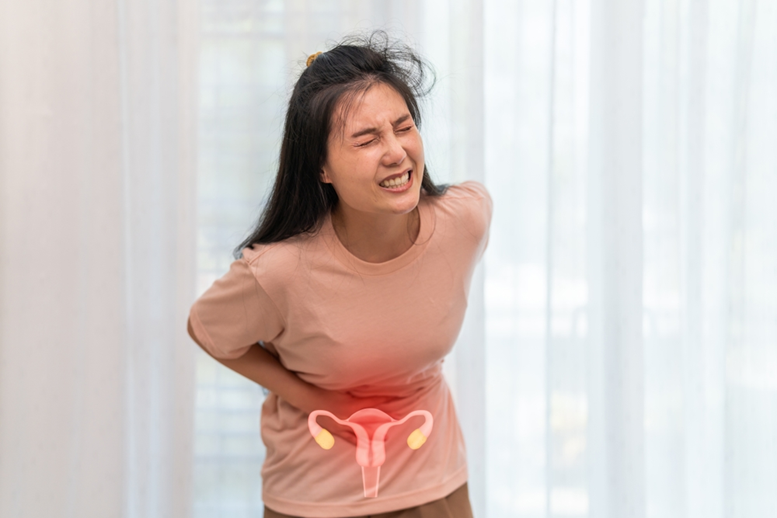The two-week wait after intrauterine insemination (IUI) can feel like a mix of anticipation, hope, and impatience. At 5 days after IUI, many people wonder: Is anything happening? Should I feel different? This phase is crucial because your body may be preparing for implantation, but it’s also a time when noticeable symptoms are rare or absent.

Dr. Hrishikesh Pai, a globally recognized fertility expert with over 40 years of experience, explains:
“By five days post-IUI, your body is in a delicate transitional phase. While implantation might not have occurred yet, the groundwork is being laid. It’s normal to feel anxious, but try to focus on taking care of yourself. Remember, symptoms—or the lack of them—don’t determine success at this stage.”
So, what’s really happening? Let’s break it down.
What Happens 5 Days After IUI?
To understand what’s happening 5 days after IUI, it’s important to know the step-by-step process following insemination:

1. Fertilization Likely Occurred
If sperm met the egg successfully, fertilization likely took place within 24-36 hours of the IUI procedure. By day five, the fertilized egg (now a zygote) would have started dividing and forming a blastocyst—a cluster of rapidly multiplying cells preparing to implant in the uterus.
But here’s the interesting part: the embryo’s progress at this stage is unique to each individual.
2. Embryo Travels Toward the Uterus
The fertilized egg moves from the fallopian tube toward the uterus, a journey that typically spans 3-5 days. By now, the blastocyst may be nearing the uterine lining, ready to attach in the coming days.
You’re probably wondering, what happens next? Read on!
3. Uterine Lining Prepares for Implantation
Your uterine lining, thickened by hormones like progesterone, is primed to nourish the embryo. While implantation after IUI usually begins around 6-10 days post-IUI, your body is actively creating the conditions necessary for success.
Dr. Pai elaborates:
“Implantation doesn’t happen overnight—it’s a gradual process. By day five, the uterine lining is rich with nutrients and ready for the next step. While you may not feel anything yet, rest assured that your body is doing its part. Staying patient and positive can make this waiting period less stressful.”
Still with me? Let’s talk about what symptoms you might notice.
Possible Symptoms 5 Days After IUI
At 5 days post-IUI, you might experience subtle changes, though it’s just as common to feel nothing at all. Here are some potential symptoms you might notice:

1. Mild Cramping or Twinges
Some women report mild cramping, similar to menstrual cramps. This is typically due to hormonal changes or the body adjusting post-IUI, rather than implantation itself.
Feeling cramps? Don’t panic—it’s usually harmless.
2. Increased Cervical Mucus
You might observe more vaginal discharge. This cervical mucus, often creamy or white, is caused by elevated progesterone levels, which help prepare the uterus for implantation.
3. Fatigue or Low Energy
Feeling unusually tired? Hormonal fluctuations, especially increased progesterone, can lead to drowsiness. The emotional stress of waiting can also play a role.
4. Breast Tenderness
Progesterone can make your breasts feel sore, heavy, or tender. While this symptom overlaps with premenstrual syndrome (PMS), it’s a common post-IUI experience.
5. No Symptoms at All
And here’s the reality—not noticing any symptoms is entirely normal. The absence of changes doesn’t indicate failure.
Dr. Pai often reassures his patients:
“The presence or absence of symptoms isn’t a reliable predictor at this stage. Some women feel every twinge, while others feel nothing at all. Both outcomes are equally likely to result in a successful pregnancy. Don’t let the lack of symptoms discourage you.”
Noticing anything unusual? Let’s move on to early pregnancy signs.
Early Pregnancy Signs After IUI
Some women report subtle early pregnancy signs after IUI, even as early as five days post-procedure. Here’s what you might notice:
1. Heightened Sense of Smell
Some people become more sensitive to odors due to hormonal shifts. This could hint at early changes preparing the body for pregnancy.
You might be wondering, “Is this a reliable sign?” Not always—but it’s worth noting!
2. Mood Swings
Emotional ups and downs are common during the luteal phase, influenced by rising progesterone levels. These mood swings can occur whether or not pregnancy has occurred.
3. Bloating or Digestive Changes
Progesterone can slow down digestion, causing mild bloating or gas. This symptom is also common in early pregnancy.
Dr. Pai explains further:
“Symptoms like bloating, mood changes, or even heightened senses are often caused by hormones, not implantation itself. They can occur whether or not the IUI was successful. For definitive answers, the most important step is to wait until it’s time for a pregnancy test.”
Are you still guessing if it’s pregnancy or not? Let’s discuss testing.
When to Test for Pregnancy After IUI
Resisting the urge to test early can be challenging, but timing is critical for accurate results.
- Implantation Takes Time:
Implantation after IUI typically occurs between 6-10 days post-procedure. Testing too early, before implantation is complete, can lead to a false negative. - Wait 14 Days Post-IUI:
Most fertility specialists recommend testing on day 14 to allow sufficient time for the pregnancy hormone hCG to rise. - Avoid Overanalyzing Symptoms:
Many post-IUI symptoms mimic PMS or are side effects of medications like progesterone. Testing prematurely often adds unnecessary stress.
“It’s tough to wait, but testing too early only adds confusion. By waiting until day 14, you’re more likely to get a clear and accurate result,” says one of the best ivf doctor in Mumbai, Dr. Pai.
Feeling uncertain about what to expect post-IUI? Explore resources that guide you through every stage of your journey.
Do’s and Don’ts 5 Days After IUI
Caring for your body during this waiting period can improve your well-being and reduce anxiety. Here’s what to focus on:
Do’s
- Stay Hydrated: Drink plenty of water to support overall health.
- Eat Nutrient-Rich Foods: Incorporate fruits, vegetables, lean proteins, and whole grains to nourish your body.
- Engage in Gentle Activities: Take walks or practice light yoga to improve circulation and reduce stress.
- Monitor Symptoms Thoughtfully: Be aware of changes but avoid excessive scrutiny.
Wondering what to avoid? Keep reading!
Don’ts
- Avoid Intense Exercise: Skip high-impact activities that could strain your body.
- Say No to Alcohol and Smoking: Both can negatively affect early embryo development.
- Don’t Test Too Early: Stick to your doctor’s timeline to avoid emotional highs and lows from inaccurate results.
Expert Insights: Staying Positive During the Wait

Dr. Pai, an IVF doctor in delhi shares practical advice for managing the emotional challenges of the two-week wait:
- Focus on What You Can Control:
“Take it one day at a time. Focus on rest, hydration, and nourishing your body. Small, consistent steps can make a big difference.” - Create a Relaxation Routine:
Activities like meditation, journaling, or reading can provide an emotional outlet and help distract from anxiety. - Lean on Your Support System:
“Share your feelings with trusted friends or family members. Having a support system can help you feel less alone during this phase.”
Feeling overwhelmed? Let’s wrap it up with a conclusion.
Conclusion
The fifth day after IUI is an important step in your fertility journey. While visible signs like 5 days post-IUI symptoms or early pregnancy signs after IUI may not always appear, this phase is critical for preparing the body for implantation.
Each step in this process is unique, and progress may not always be visible. But with patience, the right care, and a focus on self-compassion, you are moving closer to your goal.
Frequently Asked Questions
Can I feel implantation 5 days after IUI?
Implantation typically begins 6-10 days post-IUI, but some women may notice early signs like mild cramping or spotting.
Is cramping or spotting normal 5 days post-IUI?
Yes, light cramping or spotting is common due to hormonal changes. However, severe pain or heavy bleeding should be reported to your doctor.
What if I feel nothing 5 days after IUI?
Not feeling symptoms is completely normal and doesn’t indicate whether or not the procedure was successful.
References:
- American Society for Reproductive Medicine (ASRM) – www.asrm.org
- European Society of Human Reproduction and Embryology (ESHRE) – www.eshre.eu

